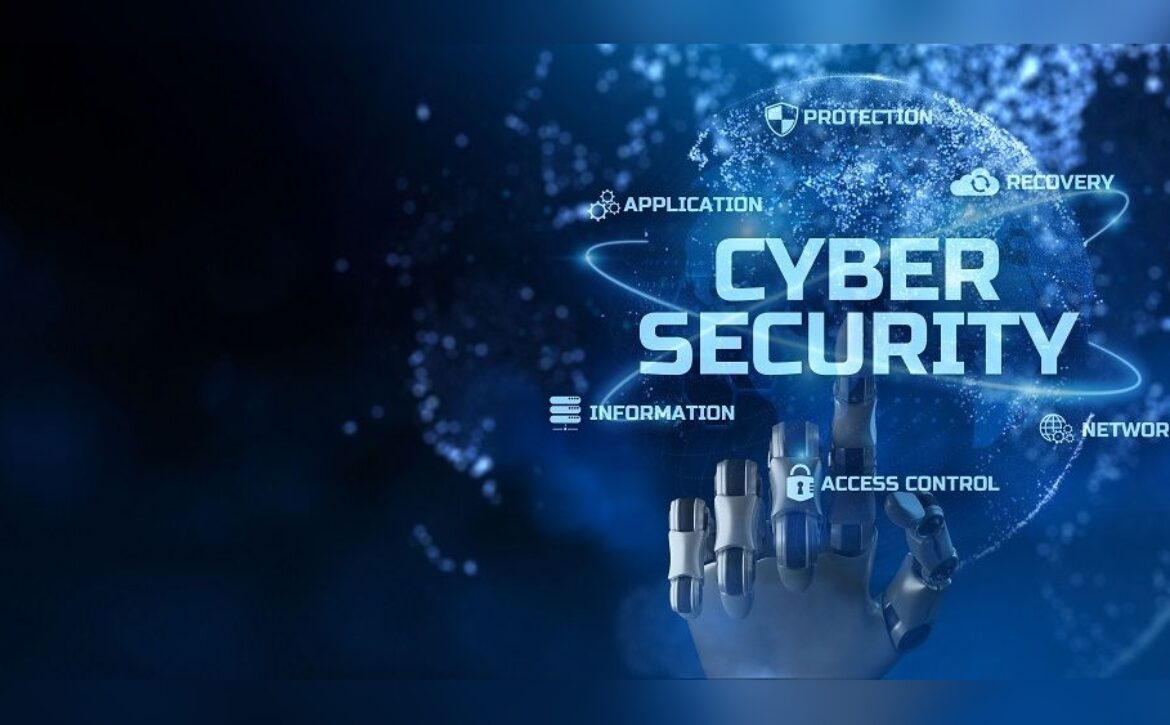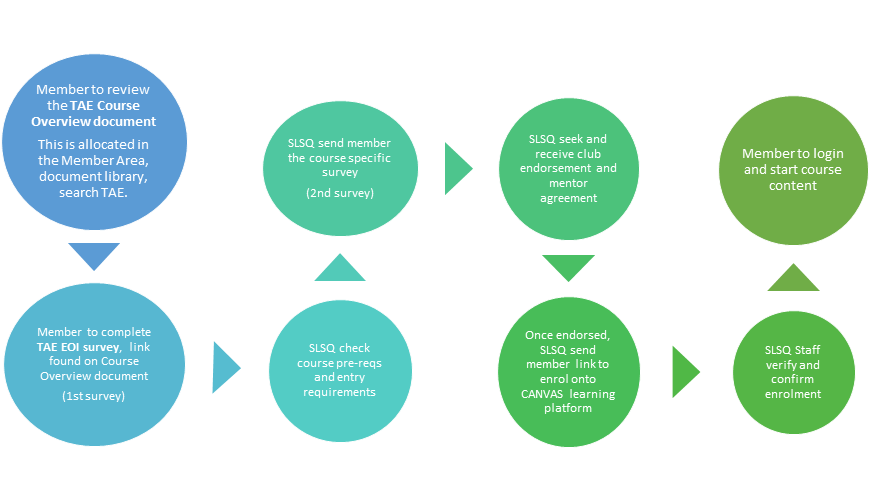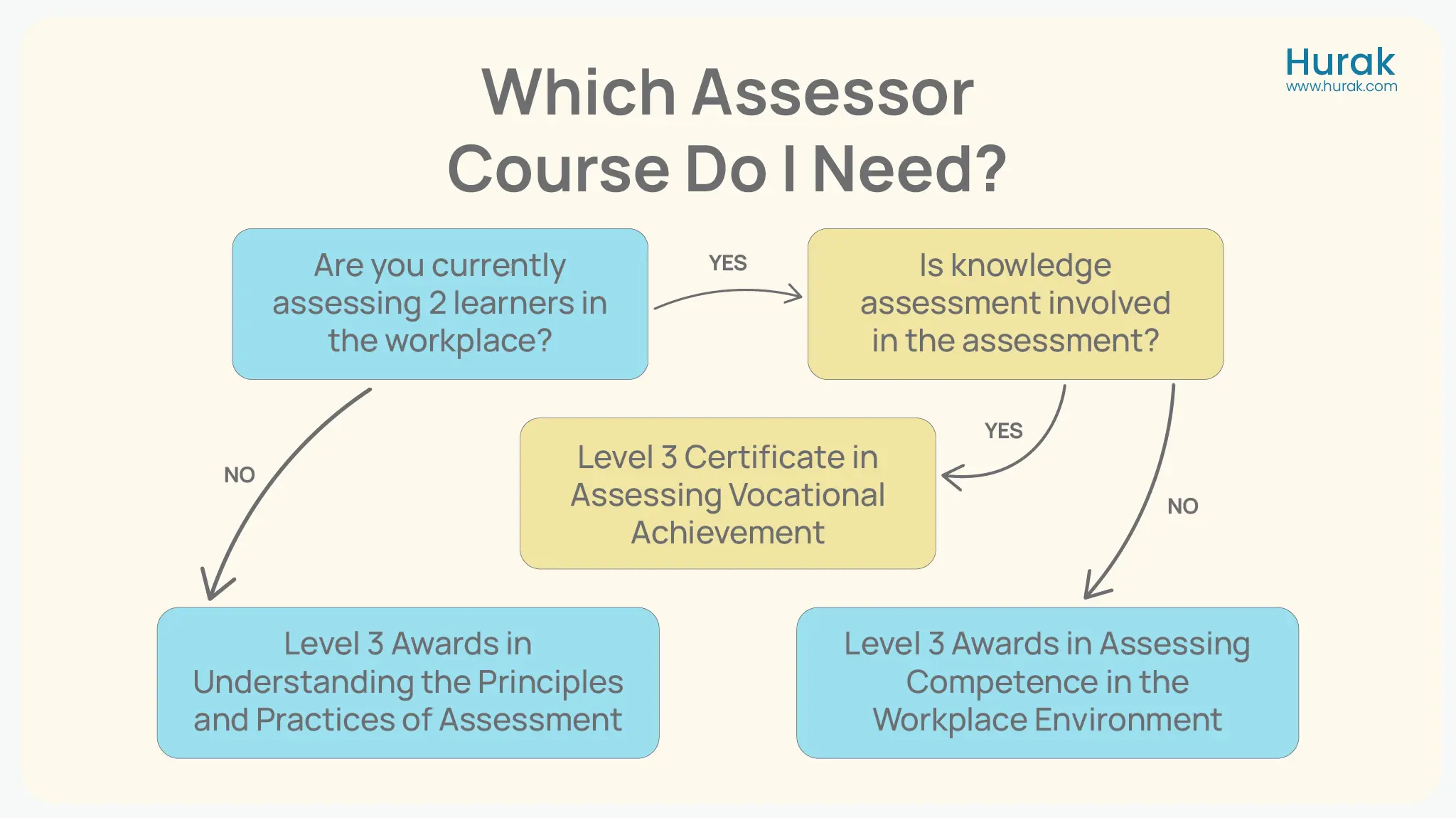
How to Become a Assessor Course: Step-by-Step Guide
Are you curious about the role of an assessor and how you can step into this rewarding career? If you’ve ever wondered what it takes to become an assessor and how you can get started, you’re in the right place.
This guide is crafted just for you, breaking down the process into simple steps and showing you the essential course you need to take. Imagine being the person who evaluates skills and knowledge, helping others achieve their goals. It’s not just a job; it’s a chance to make a significant impact.
Ready to unlock the secrets of becoming a successful assessor? Let’s dive in and explore how you can turn this aspiration into reality.
Choosing The Right Assessor Course
Selecting the right assessor course is crucial for a successful career. Focus on courses with accredited programs. Practical experience and expert instructors enhance your learning.
Choosing the right assessor course is crucial to your success and effectiveness as an assessor. With a variety of courses available, finding the one that fits your goals and learning style can be challenging. Let’s walk through the key steps to help you make the best choice for your career.
Understanding Your Learning Objectives
Before selecting a course, clarify what you aim to achieve. Are you looking to assess in a specific field, or do you want a broad understanding of assessment methods? Knowing your objectives helps narrow down courses that align with your career aspirations. Consider your current skill level and the areas where you need improvement. This self-assessment will guide you to courses offering the right depth and focus.
Researching Course Content
Look into the course syllabus to ensure it covers essential topics relevant to your field. Does it include practical components like case studies or real-life assessments? Check if the course provides updated materials, as assessment standards can change. Staying current with industry practices will give you an edge in your role.
Evaluating Course Accreditation
Verify if the course is accredited by a recognized body. Accreditation often ensures that the course meets specific quality standards. Accredited courses can enhance your credibility and may be more valued by employers. This can be an important consideration if you’re looking to advance your career.
Considering Flexibility And Accessibility
Assess whether the course offers flexible scheduling that fits your lifestyle. Online options can provide the convenience of learning at your own pace. Reflect on your personal commitments and choose a course format that won’t overwhelm your schedule. Balance is key to successful learning.
Reading Reviews And Testimonials
Seek out reviews from past participants to gauge the course’s effectiveness. Their insights can offer a realistic perspective on what to expect. Look for testimonials that mention specific benefits or drawbacks. These firsthand experiences can help you make an informed decision.
Comparing Costs And Financial Aid Options
Compare course fees and check if there are any hidden costs, such as materials or exam fees. Knowing the total investment upfront helps avoid surprises. Investigate if financial aid or payment plans are available. This can make a difference if you’re on a tight budget but still want a quality education.
Consulting With Professionals In The Field
Talk to professionals who have completed similar courses. They can provide valuable advice and share their experiences. Ask them how the course impacted their career and if they would recommend it. Their feedback can be instrumental in your decision-making process. Choosing the right assessor course is about aligning your learning with your career goals. Have you considered what specific skills you want to gain? Your choice today can shape your future success as an assessor.
Understanding Assessor Roles
Understanding assessor roles is crucial for aspiring assessors. These roles involve evaluating learners’ skills and knowledge. Assessors ensure standards are met in various fields. Knowing the duties and responsibilities helps in performing effectively.
Understanding Key Responsibilities
Assessors evaluate students’ work against set criteria. They ensure work meets industry standards. This involves checking assignments and projects carefully. Assessors provide constructive feedback to learners. Feedback helps improve future performance. They must also record assessment outcomes accurately.
Skills Required For Assessors
Communication skills are vital for assessors. They must explain complex ideas simply. Organizational skills help manage multiple assessments. Assessors need keen attention to detail. This ensures fair and accurate evaluations. Being patient and supportive aids in guiding learners.
Different Types Of Assessments
Assessors handle various assessment types. These include written tests and practical exams. They may also conduct oral assessments. Each type requires different preparation and evaluation methods. Understanding these helps assessors adapt effectively.
Maintaining Professional Standards
Assessors must adhere to ethical guidelines. They ensure assessments are unbiased. Professional development is important for assessors. Staying updated with industry changes is crucial. Continuous learning helps maintain high standards.
Essential Skills For Assessors
Assessors play a vital role in evaluating skills and knowledge. They ensure standards are met in various fields. To excel, certain skills are necessary. These skills enable assessors to perform their tasks effectively. Developing these skills can greatly impact their success.
Communication Skills
Clear communication is crucial for assessors. They must explain complex ideas simply. Listening is equally important. Understanding candidates’ needs helps in accurate assessments. Good communication builds trust with candidates. It also minimizes misunderstandings.
Analytical Skills
Assessors need sharp analytical skills. These skills help in evaluating evidence and data. They must identify strengths and weaknesses in a candidate. Making fair decisions is critical. Critical thinking aids in this process. Analyzing information leads to accurate results.
Attention To Detail
Attention to detail is essential for assessors. They review documents and evidence carefully. Small mistakes can impact assessments. Being meticulous ensures accuracy. Details matter in evaluations. Careful observation leads to reliable conclusions.
Accreditation And Certification Requirements
Becoming an assessor can be a rewarding career choice, offering opportunities to evaluate and support learners in their educational journey. However, understanding the accreditation and certification requirements is crucial to ensure you’re on the right path. These standards not only validate your expertise but also enhance your credibility in the field.
Accreditation Bodies
Accreditation bodies are the organizations responsible for ensuring that training courses meet industry standards. In the UK, the Office of Qualifications and Examinations Regulation (Ofqual) is a key player. They maintain the integrity of qualifications and assessments. You might also encounter City & Guilds or Edexcel—names you’ll want to recognize and trust.
Certification Process
Certification involves completing a recognized training program. You need to pass assessments that test your knowledge and practical skills. Look for courses that offer a blend of theoretical study and hands-on practice. This ensures you’re well-prepared for real-world scenarios.
Course Requirements
Each assessor course has specific requirements you must meet. These may include previous qualifications or relevant experience. Some courses require you to have a Level 3 qualification in Education and Training. Make sure to check these prerequisites before enrolling.
Continuous Professional Development (cpd)
CPD is vital for maintaining your certification. It’s about keeping your skills and knowledge up-to-date. Engage in workshops, seminars, or online courses regularly. This not only boosts your expertise but also demonstrates your commitment to excellence.
Why Accreditation Matters
Accreditation serves as a hallmark of quality. It assures learners and employers of your competence. Consider how it might affect your future job prospects. Would you hire an assessor without proper accreditation? Think about the trust factor involved.
In your journey to become a certified assessor, understanding these requirements is key. They ensure you are equipped with the necessary skills and knowledge. So, what steps will you take today to start your path towards accreditation? Make a plan and take action. Your future as a trusted assessor awaits!
Enrolling In An Assessor Course
Enrolling in an assessor course is your first step toward a rewarding career in assessment and evaluation. This journey requires thoughtful consideration of several factors that will influence your experience and future success. Let’s explore the key steps you need to take to find the right course for you.
Researching Course Providers
Begin by identifying reputable organizations offering assessor courses. Look for providers with strong reviews and accreditations. A course backed by recognized institutions often reflects quality and thoroughness.
Consider asking colleagues or industry professionals for recommendations. Personal experiences can provide insights beyond what’s available online. Remember, the right course provider can significantly impact your learning journey.
Comparing Course Content
Course content is crucial in shaping your learning experience. Review the curriculum to ensure it covers essential topics like assessment methods, evaluation techniques, and industry standards. Does the course offer practical exercises or real-world scenarios?
Compare several courses to see which aligns best with your career goals. A course with a well-rounded syllabus can enhance your skills and build your confidence. Keep an eye out for courses that offer opportunities for hands-on experience.
Understanding Costs And Duration
Cost is a major factor, but it shouldn’t be the only one. Check if the course fits your budget without compromising on quality. Consider what’s included in the price—are there additional materials or support services?
Duration is equally important. Can you commit to the timeline while balancing other responsibilities? Choose a course that fits your schedule and allows you to learn at a comfortable pace. A short, intensive course might be tempting, but a longer, more thorough course could be more beneficial in the long run.
What are you waiting for? Take these steps and find the assessor course that’s perfect for you. Your future in assessment begins with the right education.

Navigating Course Curriculum
Deciding to become an assessor is a significant step in your professional journey. Navigating the course curriculum can seem daunting at first, but understanding its structure helps you plan better and align your goals. The curriculum is designed to equip you with the necessary skills and knowledge to excel in your role as an assessor.
Core Modules
The core modules are the backbone of your assessor course. These modules cover essential topics that every assessor needs to master. You can expect to delve into subjects like assessment principles, understanding evidence, and developing assessment plans.
Each module is structured to build on the previous one, ensuring a comprehensive learning experience. Think about how these core skills will apply directly to your future work. You will find that these modules are crucial for your success and confidence in real-world assessment situations.
Optional Modules
Optional modules provide a chance to specialize and tailor your learning experience. Consider your career goals and interests when selecting these modules. They offer deeper insights into specific areas like vocational education, workplace assessment, or online assessment methods.
These modules allow you to customize your learning, making it more relevant to your aspirations. Ask yourself: Which areas will enhance your career prospects? Your choices here can set you apart in the competitive field of assessing.
Assessment Methods
Understanding the assessment methods used in your course is crucial for your success. You will encounter various techniques such as written exams, practical demonstrations, or portfolio submissions.
Each method is designed to test different competencies. Do you prefer practical assessments, or do written exams challenge you more? Knowing your strengths can help you prepare effectively and manage your time wisely.
These methods ensure you are not just learning but also applying your knowledge. Consider how these assessments mirror real-life scenarios where you’ll need to think on your feet. Your ability to perform well in these assessments can greatly influence your career trajectory.
So, are you ready to navigate the curriculum with confidence and purpose? Remember, each module and assessment is a stepping stone towards becoming a skilled assessor.
Gaining Practical Experience
Gaining practical experience is crucial if you want to excel in an Assessor Course. It’s not just about the theory; it’s about applying what you’ve learned in real-world situations. Whether you are just starting or looking to enhance your skills, practical experience can set you apart. Let’s dive into some effective ways to gain this valuable experience.
Internships
Internships can be a game-changer in your journey to becoming an assessor. They offer a structured environment where you can apply classroom knowledge to real-life scenarios. This hands-on exposure helps you understand the nuances of assessment, from interacting with diverse individuals to evaluating their skills effectively.
When looking for internships, focus on organizations that align with your interests. Ask yourself, what kind of setting excites you? Is it a corporate environment, a non-profit, or perhaps an educational institution? Choosing the right place can make your internship a fulfilling learning experience.
Mentorship Opportunities
Having a mentor can accelerate your learning curve significantly. Mentorship provides you with personalized guidance from someone who’s walked the path you aspire to take. Their insights can help you avoid common pitfalls and refine your approach to assessment.
Don’t hesitate to reach out to professionals in your network. Many seasoned assessors are more than willing to share their expertise. Consider joining industry-related groups or forums where you can connect with potential mentors. Building these relationships can offer you a wealth of knowledge and boost your confidence.
Volunteering
Volunteering is another excellent way to gain practical experience. It allows you to work in diverse environments and hone your assessment skills without the pressure of a formal job. This can be particularly beneficial if you’re transitioning from another field or just starting out.
Look for volunteer opportunities in community centers, educational programs, or professional workshops. These settings often need assessors to evaluate and help improve various programs. Volunteering not only enhances your skills but also contributes positively to the community.
Are you ready to roll up your sleeves and gain some hands-on experience? Practical exposure is invaluable in the world of assessment, and now you have some actionable ways to pursue it. Each step you take will bring you closer to becoming a competent and confident assessor.
Building A Professional Network
Building a professional network is key for those taking an Assessor Course. Connect with peers and experts to exchange insights and experiences. Engage in workshops and online forums to expand your understanding and relationships.
Building a professional network is crucial for aspiring assessors. It helps you connect with industry leaders. Gain insights and share experiences. A strong network opens doors to opportunities. Enhances your career growth. Discover ways to build and maintain these connections.
Joining Professional Associations
Becoming part of professional associations offers many benefits. It connects you with peers and experts in the field. These groups provide valuable resources. Such as training materials and industry news. Membership often includes access to exclusive events and workshops. Participating actively can boost your reputation. It shows your commitment to the profession.
Attending Industry Events
Industry events are excellent networking platforms. Conferences, seminars, and workshops bring professionals together. Attend these events to meet like-minded individuals. Share your experiences and learn from others. Engaging in discussions helps you stay updated. New trends and techniques emerge at these gatherings. Events also offer a chance to form meaningful connections.
Leveraging Social Media
Social media is a powerful networking tool. Platforms like LinkedIn connect you with industry professionals. Share relevant content and engage in discussions. Join groups related to your field. Participate in conversations and showcase your knowledge. Follow industry leaders and thought influencers. They provide valuable insights and tips. Social media helps you build a global network.
Job Opportunities For Assessors
Considering a career as an assessor? You’re in luck! The demand for skilled assessors is on the rise, offering a variety of job opportunities across different sectors. Whether you’re aiming to work in a specific industry or explore freelance options, there are numerous paths available. Let’s dive into where your assessor qualifications can take you.
Industry Sectors
Assessors are needed in diverse industries, from education to construction. Imagine being the key person who ensures quality standards in vocational training programs or the one who certifies skills in the healthcare sector. Your role could be pivotal in maintaining industry benchmarks and enhancing workforce competency.
Education is a major field where assessors thrive. You could work with colleges and training providers to evaluate learner progress. In construction, assessors ensure that workers meet safety and skill standards, which is crucial for project success.
Have you ever thought about working in the tech industry? As an assessor, you could be involved in certifying IT professionals, helping them validate their expertise. Your skills would be indispensable in shaping the future of technology.
Freelancing Options
If flexibility is your priority, freelancing as an assessor might be your perfect match. You can choose projects that align with your interests and expertise, offering your services to various organizations. This allows you to tailor your career to fit your lifestyle.
Freelancing offers the freedom to work remotely or on-site, providing assessments across borders. You can build a diverse portfolio by working with different clients, enhancing your reputation in the industry.
Have you ever dreamed of traveling while working? As a freelance assessor, you can take your skills on the road, assessing businesses and institutions worldwide. It’s an opportunity to combine your passion for travel with your professional expertise.
Advancement Opportunities
The assessor path is not just about maintaining standards; it’s about growth. With experience, you could advance to senior assessor roles or even management positions. Your insights and skills will be highly valued, opening doors to new responsibilities.
Consider specializing in a niche area. You can become an expert assessor in a specific field, such as renewable energy or digital marketing, increasing your demand and earning potential.
Have you thought about contributing to policy-making? Experienced assessors have the chance to influence industry regulations and practices. Your expertise could shape future standards, making you a leader in your field.
Are you ready to explore these exciting job opportunities as an assessor? Your journey can be as varied and rewarding as you choose. Assess your own potential and take the first step towards an impactful career today!
Continuing Professional Development
Continuing Professional Development (CPD) is crucial for anyone looking to excel in the field of assessment. As an assessor, you hold the key to unlocking potential and ensuring quality standards are met. But how do you stay ahead in this ever-evolving profession? CPD offers a pathway to enhance your skills, stay relevant, and increase your credibility. By engaging in advanced courses, workshops, and keeping up with industry trends, you can not only boost your career but also make a significant impact on those you assess.
Advanced Courses
Advanced courses are a fantastic way to deepen your expertise. They offer specialized knowledge that can set you apart in your field. Consider enrolling in courses that dive into complex assessment techniques or emerging technologies. These courses often provide practical applications that you can implement immediately. Imagine walking into your next assessment with cutting-edge strategies that impress your peers and clients alike.
Workshops And Seminars
Workshops and seminars are interactive platforms where you can learn and network. They allow you to engage with experts and other professionals, sharing insights and experiences. Attending these events can be a game-changer. You might discover new methodologies or tools that make your assessments more effective. Have you ever attended a seminar and left with a fresh perspective that reshaped your approach?
Staying Updated With Industry Trends
Keeping up with industry trends is essential for staying relevant. Subscribe to newsletters, join online forums, or follow thought leaders on social media. These resources can provide up-to-date information on shifts in assessment standards or innovative practices. Staying informed not only enhances your skills but also prepares you to tackle future challenges. Are you ready to be at the forefront of new developments in your industry?
Incorporating these CPD strategies into your routine will ensure you remain a top-notch assessor. The journey of professional development might be demanding, but the rewards are immense, both personally and professionally.

Frequently Asked Questions
What Is An Assessor Course?
An assessor course trains individuals to evaluate learners’ skills and knowledge. It provides methodologies and tools for effective assessment. This course is essential for those wanting to certify competencies in various fields. It ensures assessments are fair, valid, and reliable, aligning with industry standards and educational objectives.
How Long Does Assessor Training Take?
Assessor training typically lasts between two to four weeks. Duration may vary based on course provider and mode of study. Some programs offer flexible online learning options. Intensive courses may provide faster completion. Always check with your chosen provider for specific timelines and requirements.
What Qualifications Are Needed To Start?
Generally, you need relevant industry experience or a related qualification. Some courses may require specific educational backgrounds. It’s crucial to check prerequisites before enrolling. Prior experience in teaching or training is advantageous. Contact your course provider for detailed entry requirements.
Can I Take Assessor Course Online?
Yes, many institutions offer online assessor courses. These courses provide flexibility and convenience for learners. They often include video lectures, interactive modules, and virtual assessments. Ensure the online course is accredited and meets industry standards. Check reviews and ratings before enrolling.
Conclusion
Becoming an assessor opens new career paths and opportunities. This course equips you with essential skills and knowledge. Start your journey with the right training. Practice what you learn. Connect with other assessors for insights. Stay updated with industry trends.
Certification adds value to your professional profile. Dedication and hard work lead to success. Remember, every step forward is progress. Embrace the learning process. Your new career as an assessor awaits. Explore, learn, and grow. Your future in assessing starts now.
Take the leap today and shape your career path.




